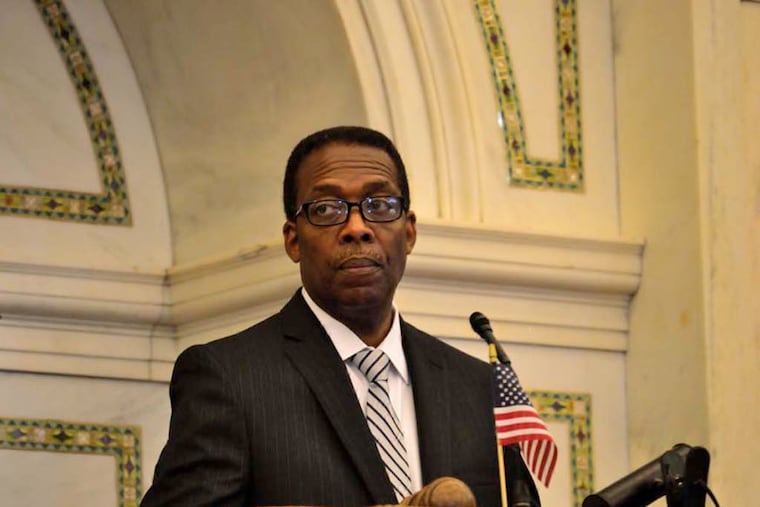Control over what's built
A power struggle for the future appears to be unfolding now in City Hall, where Council President Darrell Clarke is pushing legislation that would upend how development is managed, an assignment more appropriately performed by a mayor.

A power struggle for the future appears to be unfolding now in City Hall, where Council President Darrell Clarke is pushing legislation that would upend how development is managed, an assignment more appropriately performed by a mayor.
Clarke wants to consolidate the functions of various agencies that consider development proposals - including the Planning Commission, Art Commission, and housing agencies - under one department whose director would become a member of the mayor's cabinet. Conceptually, Clarke's plan is close to what Mayor Nutter already has done by appointing a deputy mayor to oversee the planning and commerce departments and other related agencies.
Smoothing the development process is a worthy goal, but along with that, Philadelphia needs to end City Council's tyrannical control over land use. The traditional "prerogative" of district Council members to veto even the most minor proposals leads to developers' larding Council members' campaign accounts with tribute in obvious attempts to influence them.
Of course, Council members should play a significant role in approving development affecting their districts, but not to the point of having the divine power of feudal lords. Yet there is reason to fear that Clarke's bill may be an imperious move to amass even more power within Council. It doesn't sit well that he is moving the bill in the midst of a mayoral election. Is that a message to the next mayor that Clarke doesn't intend to be bound by the city's strong-mayor form of government?
His legislation doesn't adequately explain how the new development agency would function. It's possible that consolidating the art, historical, and planning commissions under one authority would take away the very independence that makes their recommendations valuable. Each board plays a specific role in ensuring Philadelphia's rich history and cultural aspirations aren't ignored. Greater coordination and cooperation make sense, but only if these panels retain the ability to provide meaningful input.
To his credit, Clarke has adjusted the bill in response to some observations about it. Initially, he wanted the Department of Licenses and Inspections to be placed within this new department, too, but critics of the idea persuaded him that the L&I's primary purpose must be public safety. Clarke also withdrew a provision that the new development director must be confirmed by City Council, which appeared to be another attempt to grab power reserved for the mayor.
Clarke also has slowed down the legislation's progress. He originally intended to ask voters in the May 19 primary to approve the charter change, but now they may not get to vote on the proposal until the Nov. 3 general election. Clarke should use that additional time to get more opinions about his proposal from developers, property owners, and others. Even better, he should delay a vote until the city's next mayor can be included in the discussion.
It's not just developers who should be concerned about how Clarke's bill would change the way in which proposed development occurs in Philadelphia. Residents, preservationists, civic groups, and many more have a stake in how building occurs in the nation's first planned city.